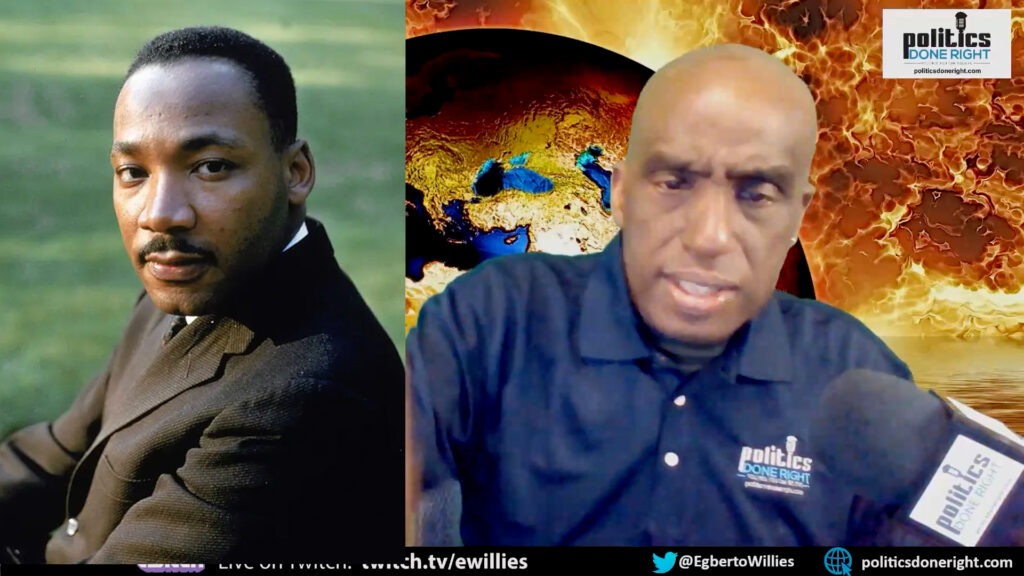Harry Belafonte relays a story that proves Martin Luther King ( MLK ) was closer in values to Bernie Sanders and MLK than most would admit.
Martin Luther King said he was no capitalist
This morning as I was writing the essay for my Politics Done Right radio program on KPFT 90.1 FM Houston, my daughter saw the title and asked me if I knew that Martin Luther King was not a capitalist. I know he worked on the Poor People’s Campaign and other economic endeavors in the latter part of his life. But I had not looked it up. Her statement piqued my interest. So, I did some Googling.
Harry Belafonte wrote a passage in his book “My Song: A Memoir of Art, Race, and Defiance” that reveals an interesting fact. It implies Martin Luther King had beef with former U.N. Ambassador Andrew Young, a staunch capitalist.
MLK had come back from a meeting in Newark with a black nationalist advocating violence. As a staunch believer in nonviolence, it gave MLK pause. He told Andrew Young that he was close in his belief with all those who believed our economic system was inherently bad for most. According to Belafonte, when Young claimed the system simply needed some tweaking, MLK exploded.
“Somehow, frustration over the [Vietnam] war has brought forth this idea that the solution resides in violence,” Martin said. “What I cannot get across to these young people is that I wholly embrace everything they feel! It’s just the tactics we can’t agree on. I have more in common with these young people than with anybody else in this movement. I feel their rage. I feel their pain. I feel their frustration. It’s the system that’s the problem, and it’s choking the breath out of our lives.”
In the pause that followed, Andy replied, “Well, I don’t know, Martin. It’s not the entire system. It’s only part of it, and I think we can fix that.”
Suddenly, Martin lost his temper. “I don’t need to hear from you, Andy,” he said. “I’ve heard enough from you. You’re a capitalist, and I’m not. And so we don’t see eye to eye — on this and a lot of other stuff.”
It was an awkward moment. Martin was really angry. But I understood the subtext. Deep down, Andy was ambivalent about the Poor People’s Campaign. All the other goals that we had set for ourselves up to this moment were tangible. Almost all of them were focused on justice. But when it came to economics, the goals were more complicated, the lines more blurred. Andy didn’t believe that all the victims came from the same level of experience. He felt that there was a critical difference between poor whites and Hispanics, on one hand, and poor blacks on the other. This disparity, he felt, could make the Poor People’s Campaign a rocky journey.
The tension peaked. “The trouble,” Martin went on, “is that we lived in a failed system. Capitalism does not permit an even flow of economic resources. With this system, a small privileged few are rich beyond conscience and almost all others are doomed to be poor at some level.” Taking a sip from his glass, he continued, “That’s the way the system works. And since we know that the system will not change the rules, we’re going to have to change the system.”
It is immediately apparent that MLK’s belief was much closer to that of Bernie Sanders and AOC. He got it. Our economic system is inherently flawed. The income and wealth inequality that gets progressively worse and its immorality, from healthcare to family values, is evident for all who want to open their eyes to reality.

